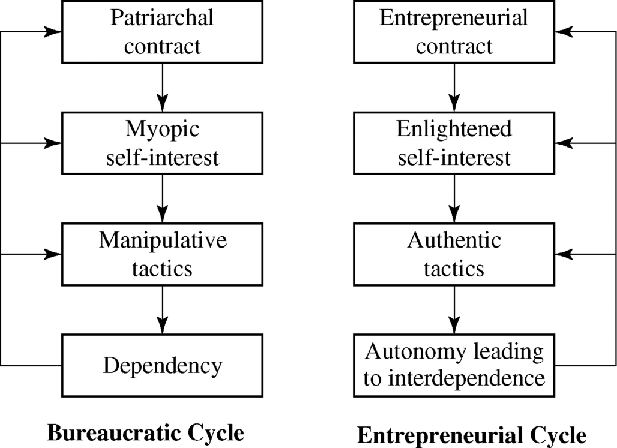ThreeA Culture of Empowerment
In addition to the individual choice we make for caution or courage at a specific moment, we are impacted by both the norms and practices of our organization and the set of beliefs and values we bring to the job. We need to understand the nature of the bridge we cross before we can begin to walk it.
Four elements are critical in understanding organizational politics: (1) the contract between the individual and the organization, (2) how each of us defines our self-interest, (3) the tactics we use in generating support for our activities, and (4) the basic autonomy, interdependence, or dependency that each cycle fosters. These elements form a self-reinforcing cycle that results in either an entrepreneurial or a bureaucratic way of operating.

Bureaucratic and Entrepreneurial Cycles
Ultimately, it is by moving toward the entrepreneurial cycle that our approach toward positive politics is realized. With an understanding of the bureaucratic and entrepreneurial cycles, we can look at ways in which we, as managers, can be advocates for our function in a positive way.
The Bureaucratic Cycle
In many ways, organizations unintentionally encourage people to choose to maintain what they have, to be cautious and dependent. Every organization was started by someone who bet the farm to offer a new product or service––an entrepreneur. It doesn't matter whether ...
Get The Empowered Manager, 2nd Edition now with the O’Reilly learning platform.
O’Reilly members experience books, live events, courses curated by job role, and more from O’Reilly and nearly 200 top publishers.

